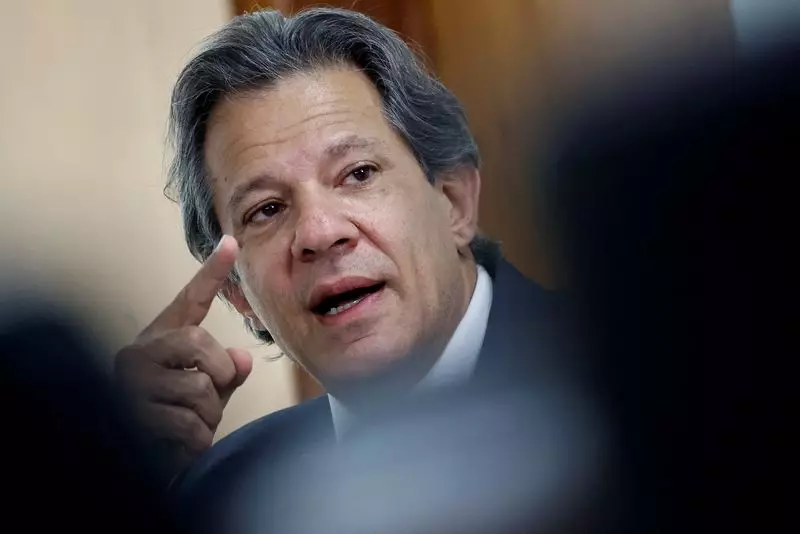Brazil is currently navigating a precarious economic landscape, punctuated by increasing pressures from market participants demanding clarity on fiscal reforms. Recently, Finance Minister Fernando Haddad made headlines by canceling a planned trip to Europe, a decision that underscores the urgency of addressing domestic fiscal concerns. This article explores the implications of Haddad’s cancellation and the broader context of Brazil’s economic challenges.
The Brazilian Finance Ministry’s announcement regarding Haddad’s cancellation reveals a crucial shift in priority. Initially slated for a European engagement from November 4 to November 9, the Minister redirected his focus to “domestic subjects,” a term that remains deliberately vague yet significant. This strategic pivot indicates that the government is acutely aware of the mounting pressure from investors and analysts who are anxious for concrete spending-cut measures that had been anticipated. The decision to prioritize domestic issues over international diplomacy signals a shift in tactics to restore confidence within the local market.
The reaction within the financial markets has been telling. Following the announcement of Haddad’s canceled trip, the U.S. dollar reached its highest closing rate against the Brazilian real since May 2020. This surge reflects investor anxiety over Brazil’s unresolved fiscal strategies. The market’s jitteriness stems not only from a vague timeline for proposed spending cuts but also from apprehensions surrounding the upcoming U.S. presidential election, which adds an additional layer of uncertainty. Investors are keenly aware that economic decisions made by international powers can have ripple effects on emerging markets like Brazil.
Government officials have indicated their intent to unveil fiscal measures following the completion of Brazil’s municipal elections. However, the lack of a clear deadline leaves many wondering when tangible actions will surface. Analysts speculate that the delay could exacerbate existing concerns over Brazil’s fiscal stability, especially if the government continues to lack transparency and decisiveness in its financial governance. A proactive approach is needed to win back investor confidence, yet the government appears to be dragging its feet.
While Haddad’s eventual rescheduling of his European trip remains uncertain, the ministry’s statement suggests there is an intention to revisit international duties in the future. However, for the time being, the focus on domestic issues seems not only strategic but necessary. It reflects an understanding that a nation’s economic integrity must first be reinforced at home before it can confidently engage abroad.
Brazil stands at a critical crossroads where resolving internal fiscal matters is paramount. The cancellation of Minister Haddad’s trip to Europe may seem like a tactical retreat, but it serves as a reminder that the government must address investor concerns with urgency. As Brazil grapples with these economic challenges, the path forward will require a delicate balance of immediate action and strategic long-term planning to ensure fiscal stability and regained trust from both domestic and international stakeholders.

